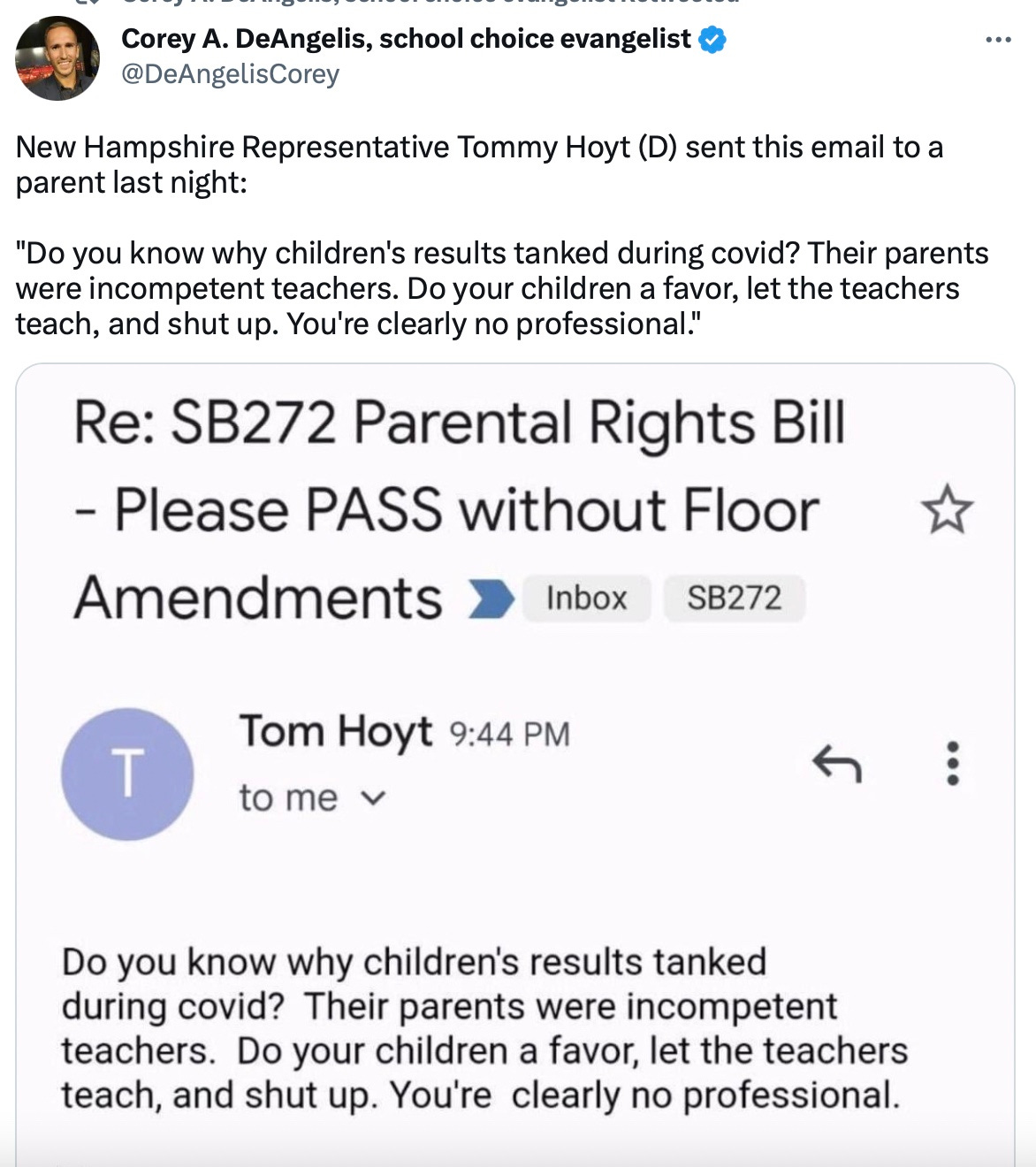"The Abolition of Man" in Education
[Trivia: What do the cities of DC, Buffalo, and Dallas—and only those three cities—have in common?]
Last August, I wrote about CS Lewis’ nonfiction The Abolition of Man, and in particular the part where Lewis criticizes an “educational” book that purports to teach children how to write—but instead of giving “writing” advice, it indulges in promulgating a whole values system, one which gives the appearance of improving writing. The values system challenges the worth of any emotional language as subjective, and posits that actual fact is the only thing worth committing to the page. While this mindset would influence one’s writing, it is hardly writing advice. Lewis skewers this “educational” book’s co-authors: “literary criticism is difficult, and what [the authors] actually do is very much easier.”
This is an evergreen criticism of today’s intellectual elite. They say things and propound beliefs in the name of expertise that, substantively, is nothing more than a values’ decision. It comes wearing only a few different masks; one of the main ones is the criticism of not being “professional.” As in what a member of New Hampshire’s state legislature emailed to a parent recently:
"Do you know why children's results tanked during covid? Their parents were incompetent teachers. Do your children a favor, let the teachers teach, and shut up. You're clearly no professional."
This is especially salient when our Secretary of Education is going around saying things like, “Teachers know what is best for their kids because they are with them every day. We must trust teachers.”
The only difference between these two is the presentation. Just because teachers are professional educators who are trained in and familiar with pedagogy techniques (at least hopefully—plenty aren’t) doesn’t imply that they have any special philosophical insight into the nature of virtue or the good life. For that matter, it doesn’t even mean that they care more about the children in question than any random person. Normally, they’d probably develop feelings of attachment or investment, but they may just as well see them as a means to an end (political change, hastening the revolution, etc.) or as avatars for their own narcissistic impulses.
Nothing about teachers means we “must” trust them, especially not in re: knowing what is best for kids. Nothing about their being professional educators means that they deserve to be the sole voice in anything related to education.
~
And on Lewis’ initial subject of writing advice, I wanted to speculate a little. Mark Twain wrote in “The Art of Authorship,” published in 1890, that,
Well, also [the writer] will notice in the course of time, as his reading goes on, that the difference between the almost right word and the right word is really a large matter—’tis the difference between the lightning-bug and the lightning.
I’d like to suggest that if Twain had written some decades later, he might have said that “the difference between the almost right word, and the right word, is the difference between the atom and the atom bomb.”
~
Answer: They’re the site of Presidential assassinations. (Both Lincoln and Garfield were killed in DC.)




